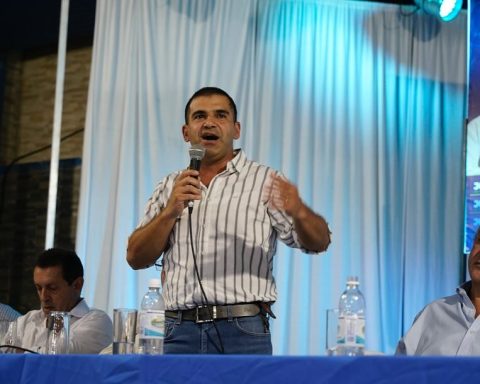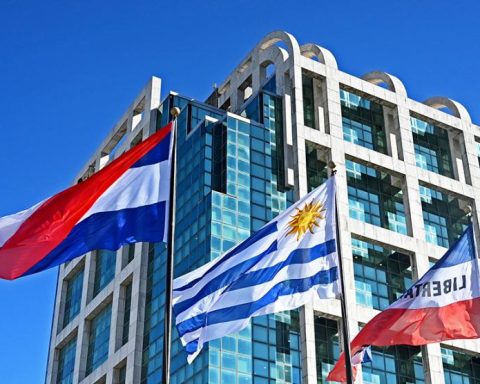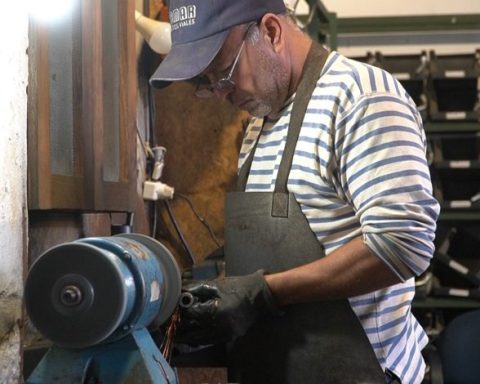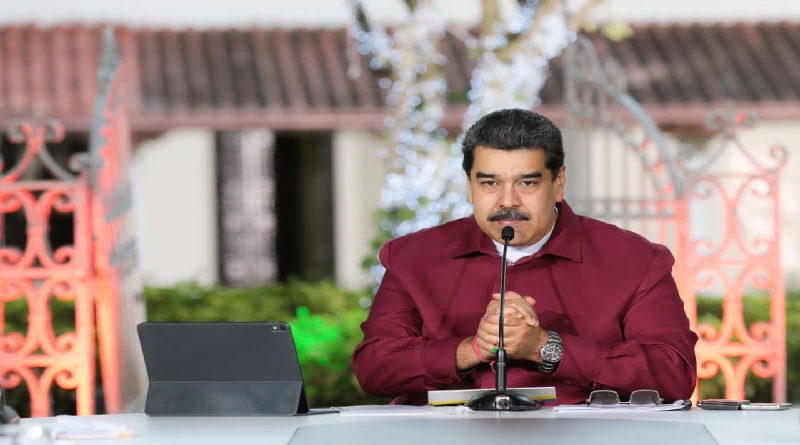The State Health Services Administration (ASSE) came out to refute this Wednesday the “circus” that various leaders of the Broad Front generated with a series of accusations that point to a reduction both in spending and in the stock of medicines in hospitals in various areas of the country, which – it is claimed – in some cases reached 90% compared to the last two years of the Broad Front government.
The answer came after The Observer will disclose this Monday a survey in three public centers of health – Cerro Largo, Artigas and Canelones – which, in the first case, indicated a 72% reduction in the purchase of 32 selected drugs in the period analyzed. That is to say that, in more than seven out of ten medicines analyzed, the purchases were made in smaller quantities.
This survey, prepared by Senator Charles Carrera, the doctor Federico Preve and the economist Adriana Arosteguiberry, focused on the impact that this reduction had from a health point of view. As noted, in Cerro Largo the reduction reached 35% of drugs intended to treat hypertension, 28% in cases of respiratory diseases and 23% in those intended for mental health. The only cases in which increases were verified were those intended to treat chronic pain and allergies.
ASSE authorities chose to respond with numbers. The Melo Hospital Pharmacy report, closed this Wednesday and to which he accessed The Observer, points out that the drug purchases at that center totaled $105 million in 2022 compared to the $86 million that, at updated values with respect to the dollar, had been invested in 2019, the last year of the Frente Amplio administration. That’s a difference of 21%. It was also the second consecutive year of increase after in 2020, the first of this government, spending dropped to $60 million.
As of December 2022, the stock of medicines in that hospital was worth just over $17 million, compared to the $16 million that – again at updated values - was in existence in December 2019. Here again a decrease is observed in the first year of the current government. At the end of 2020, the stock amounted to $60 million.
The Hospital de Melo closed in 2022 with 684 thousand prescriptions dispensed, the highest figure so far in this administration. In 2021, 565,000 prescriptions had been issued and in 2020 there had been 473,000. The year 2019, the last of the frontist government, closed with 755 thousand prescriptions dispensed.
The management of medicines was defended by the director of that center, Ricardo Caballero, who admitted having received concerns from various local citizens who contacted “moved” for the information revealed this Tuesday by The Observer. Faced with the complaint from the Broad Front, the chief felt “obligated” to clarify to the 57,000 users that the hospital pharmacy “enjoys very good health.”
Caballero assured that the monthly drug purchase operation in Cerro Largo is around $10 million and 56,000 prescriptions are issued between the hospital and the Primary Care Network (RAP). According to the director, in 99.6% of cases the patient leaves with the medication that was indicated by the doctor. Therefore, he maintained, only in some “very specific” cases can there be a delay in delivery.
in dialogue with The Observer The director pointed out that the hospital he heads manages a vademecum of 670 drugs, which complies with the directives indicated by the ASSE Pharmacy Committee and with the conditions required by the Technical Drug Form (FTM) defined by the Ministry of Public Health. “No user should be without medication,” said Caballero, who insisted: “There are no shortages or decrease in purchases. Under no circumstances can we accept that it is said that it is falling back.”
What was done, he explained, was to “take out of circulation” some medicines that – he assured – were offered twice in two different presentations. This was the case, for example, with regard to inhalers, bronchodilators or antihypertensives. Thus, “seeking efficiency”, the offer was unified and some 30 drugs were removed from the list
Montevideo: safety and medicines
On the other hand, the ASSE authorities came out to respond this Wednesday to the accusations that, from the Municipality of Montevideo, were made around the closure of some polyclinics in certain neighborhoods for security reasons. It is a situation that motivated a series of marches and countermarches between the administration and the Ministry of the Interior in the last hours of 2022.
The director of Health of the capital’s commune, Virginia Cardoso, said this Wednesday at a press conference that the municipal polyclinics – inserted in places of “greater social complexity – they had to extend their hours due to the entity’s decision to cut their attention for security reasons.
The general manager of ASSE Eduardo Henderson, assured this same Wednesday that this never happened. “If that were the case, the director of Health of the Municipality should have contacted ASSE to solve the problem of the patients. She never did.” The entity also defended the drug purchase policy in the metropolitan area, also questioned by the Broad Front. The figures on which the opposition is based indicate that acquisitions in that area of the country between 2020 and 2021 fell 65% compared to the 2018-2019 biennium.
The current director of the Metropolitan RAP, Federico Focco, rejected the conclusions of the report and chose to compare the drug shortages in both periods. As he explained this Wednesday, in January 2020 there was a shortage of 120 medications in the agency’s pharmacies in Montevideo and surroundings. This month, he assured him, only 13 drugs are missing from the formulary and that is because there is no availability on the market. “The same information given in a bad way generates a circus”concluded the hierarch.

















